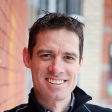
Part One: The Latest International Developments
Following last month’s GLOBE Conference in Vancouver, Energy Futures Lab Director Chad Park caught up with two members of the Energy Futures Lab Advisory Council, Tzeporah Berman and Toby Heaps, both of whom had important roles at GLOBE and its surrounding events.
The following is part one of the three-part discussion and focuses on some of the big international developments that Tzeporah and Toby believe are changing the playing field for the global energy system. Part two explores infrastructure and policy to guide energy transition, and part three focuses on specific considerations and opportunities for Alberta’s energy future.
Chad: Both Tzeporah and Toby are recognized leaders on the global stage in their respective areas of expertise – Tzeporah as a prominent environmental activist and Toby as an expert and advocate in the role of capital markets and institutional investors in sustainable development. They each have strong personal ties to Alberta and also bring a global perspective. Whether or not we agree with all of their views, I believe it is important to consider this perspective as the Energy Futures Lab ponders how Alberta will position itself and evolve in the rapidly changing global energy system.
Toby Heaps is the CEO and Co-Founder of Corporate Knights, CK Capital and the Council for Clean Capitalism. He spearheaded the first global ranking of the world’s 100 most sustainable corporations in 2005, and in 2007 coined the term “clean capitalism.” He sits on the Sustainability Accounting Standards Advisory Board and the University of Toronto’s Environment and Finance Committee. He is also is a member of the Advisory Council for the Energy Futures Lab.
Tzeporah Berman BA, MES, LLD (honoris causa) has been designing environmental campaigns and working on environmental policy in Canada and beyond for over twenty years. She is an Adjunct Professor of York University Faculty of Environmental Studies and works as a strategic advisor to a number of First Nations, environmental organizations and philanthropic foundations on climate and energy issues. Tzeporah co-chairs a small oil industry/ENGO problem solving forum in Alberta on oil sands policy and was appointed last year to the BC Government Climate Leadership Team. She is a member of the Advisory Council for the Energy Futures Lab and is the former co-director of Greenpeace International’s Global Climate and Energy Program and Co-founder of ForestEthics.
Chad: Let’s discuss the major international developments and events in recent months that promise to have a big influence on energy policy both in Canada and globally. Events like Paris, Davos and GLOBE in Vancouver – you two have been a part of these events in one way or another. What do you think is important for people to know coming out of them?
Toby: The key thing for people to know from the Paris climate talks is that in an unprecedented move, 195 countries all agreed to usher in a zero net carbon economy sometime this century. That’s a total game changer. At zero net emissions, there’s not a lot of room for burning fossil fuels, unless we have many advances in carbon capture and use technology.
I don’t think it has totally sunk in, how unprecedented this is. It was way beyond what I expected to happen. Of course, it’s not legally binding, but these things are more meant to establish new norms and understandings of what the world is going to look like. These agreements send signals to markets to start factoring in new realities and expectations.
Tzeporah: I agree. I think we’ve seen a few game changers in the past year. For one, there is now a recognition of the urgency of climate change. This is now mainstream and the era of climate denial is over. The Alberta Climate Plan is a great example of this. It’s the first time that major oil companies stood up and acknowledged that they’re going to have to support significant climate policy, not just generic statements about carbon pricing.
We’re seeing a huge shift in the narrative around climate change, which also has its new challenges. I think while the era of climate denial is over, we’re now in the era of “yes, and” or “yes, but.” It’s still a complex conversation and there are still people dragging their feet, but we’re starting to have the same conversation now. We’re starting to ask the right questions together, both in Canada and internationally.
I would say the second game changer is the emergence of a serious conversation around a carbon budget. Science is now telling us that two-thirds of remaining fossil fuel reserves need to stay in the ground if we’re going to keep the world at safe climate levels. Now, the majority of the world’s governments are not just arguing for 2 degrees, but are talking about 1.5 degrees to ensure a climate safe world.
Toby: In addition to narrative changes, there is also a really interesting dance going around in terms of market expectations. Most of the market is expecting a slow pulse year round with respect to how we’re going to price emissions and regulate away certain types of things like thermal coal.
The market is looking at this and saying, “Okay, it’s going to happen but it’s not going to happen tomorrow and we’ll have some time to adjust.”
What changed after Paris was the market saw that this is going to happen in a more pronounced fashion, more quickly than we thought just a month ago. What this is ultimately doing is creating room for companies that want to build a bridge to a new energy future to now announce some pretty bold moves that they wouldn’t have for fear that it would affect their share price.
Tzeporah: The bottom line is that these companies in the past were banking on climate policy failure. Reports from several major oil companies, where if you dug into why they were not responding to the carbon bubble analysis and the issues around carbon budget, it was because they simply did not believe that the world would get its act together and that climate policy was a serious threat to developing greater reserves.
Now, post-Paris, they are looking at the writing in the wall saying, “Oh, in fact, that wasn’t a very safe bet of ours.”
Toby: Probably the most interesting takeaway from Davos wasn’t in the headlines, but it was that the Carbon Tracker was there. The folks that pioneered the notion of the carbon budget are out to popularize it. They held a lunch and a surprise guest showed up at lunch. It was the chairman of one of the largest coal companies in the world, Tony Hayward from Glencore.
The fact that he showed up to this lunch is pretty suggestive of how fast this issue has moved. He wouldn’t even have had 10 minutes to listen to those guys before. He’s there now because his investors are starting to tip the stock card. He’s there because he has to be there.

Chad Park is the Director of the Energy Futures Lab and Executive Director of the Natural Step Canada





